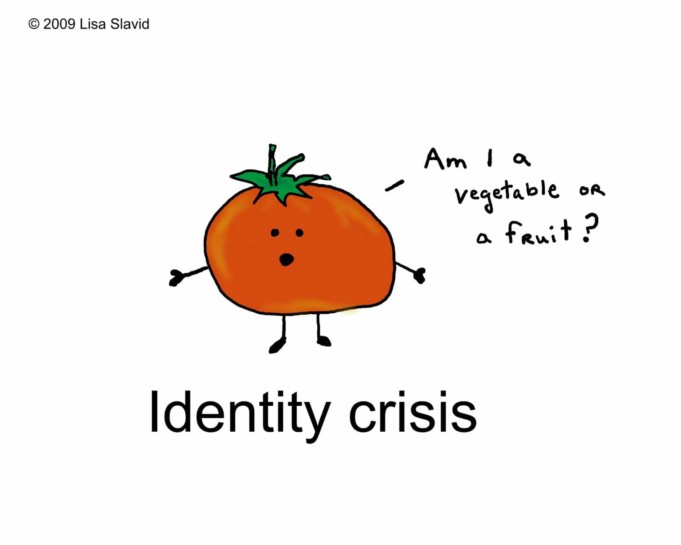Do you have questions concerning who you are? What your values are or what your purpose in life is? If yes, then you may be experiencing what some call an identity crisis. The term “identity crisis” was first used by developmental psychologist and psychoanalyst Erik Erikson.
He came up with the idea of adolescent identity crisis and midlife crisis, believing that personalities were born from finding solutions to life issues. If you’re going through an identity crisis, you may begin to evaluate your sense of self or identity.
This often happens due to life stressors or significant changes in life, or maybe due to circumstances such as age, or progression from a particular stage (for example, childhood, school or work).
If you’re experiencing an identity crisis, here are the things you need to know and how to address it.
Symptoms of Identity Crisis
Since identity crisis is not a diagnosable condition, it doesn’t have any typical “symptoms” like malaria or fever. Instead, here are some signs that will indicate if you’re experiencing an identity crisis.
- You’re asking questions about your identity – overall or about a particular aspect of life like age, career or relationship.
- You’re going through huge personal conflict as a result of questioning who you are or your societal role.
- Massive changes have recently occurred in your life that is affecting you emotionally such as divorce.
- You’re questioning things such as career path, interest, values, beliefs, spirituality that majorly influences how you see yourself.
- You’re looking for more meaning, reason or passion in your life.
It’s a normal thing to question who you are, especially since we evolve in every stage of our lives. However, when it begins to interfere with your daily routine and thoughts, you may be having an identity crisis.
Is it something more serious?
Any type of crisis can affect your mental health negatively. Having a negative view about yourself or your life has been reported to be a benchmark for depression.
If you notice any sign of depression, it is best to seek help immediately, especially if they come with suicidal thoughts.
Symptoms of depression include
- Problems with concentration, sleep, motivation, energy levels
- Changes in weight and appetite
- Irritability
- Fatigue
- Loss of interest in things once loved
- Feelings of worthlessness and hopelessness
Causes of Identity crisis
Although identity crisis is often thought to happen at certain ages (for instance, during midlife or teenage), it can happen to anyone, of any age, at any point in life.
Often, identity crises or other issues concerning mental health could spring up due to major life stressors. These stressors aren’t always harmful, but they still create a lot of stress, which makes you question your identity and values.
Stressors could be
- Experiencing a traumatic event
- Losing a loved one
- Getting or losing a job
- New health issues
- Getting married
- Getting separated or divorced
These and other major life stressors can undoubtedly affect your daily life and your views about your identity.
A recent research reported that factors such as health issues, stress levels and social support could all have an impact on the development of “midlife crisis”.
Treatment of Identity crisis
It may be stressful to question your sense of self, but in the long run, it may turn out to be a good thing. Knowing yourself better and getting used to changes can enable you to grow as an individual. Here are some things you can do to overcome identity crisis:
Look within yourself and explore
Take some time out to thoroughly look inward and question yourself about things you like and don’t like anymore. Set some questions for yourself and try to find answers to them over time and if the answers you get can help you sort things out.
Take note, you don’t need to have all the answers – and they may change from time to time. You could ask questions like:
- What qualities and characteristics set you apart from others? How have they changed over the years?
- If you’re going through a major change in your life: How have things changed for you? Are you satisfied with them? How can you cope with these new occurrences?
- What values do you hold dear? Is anything working against them?
- What are your hobbies, passion and interest? Are you doing what you love to do, and if not, why not? (If you enjoy swimming and haven’t for a couple of years, what are the factors preventing it?)
- What grounds you? What keeps you going when you’re struggling?
- What’s important to you in regards to your purpose in life, sense of identity or values? Is there anything you think you can do to improve your sense of self?
Search for joy and other ways to cope
What makes you happy? What gives your life meaning and a sense of purpose? You don’t really need to have a fulfilling occupation, but if you aren’t doing anything that gives your life a sense of fulfilment, then this might be the cause of your feelings of crisis.
You might find fulfilment in picking a new hobby, interacting more with people, volunteering to a humanitarian cause or any other thing outside your job. Or, you may discover that getting a new job that fits your personality is what you need.
Look for support
Getting good social support can be of great help in coping with huge changes, questions of identity and stressors. There are so many places you can get support. They include:
- Family members, friends and partners.
- Your place of worship or community
- A new group, a club that has the same interest as yours
- Team sports and activities
- A support group, especially if you’re dealing with a new health condition
- Individual therapies or mental health groups
Ignore internal and external judgment
The expectations of other people as well as ours could majorly affect how we’re feeling. But don’t allow society to set standards for what you should look like and who you are.
Just because you belong to a particular cultural group, gender, or age doesn’t mean that you should copy what they’re doing if it doesn’t go down well with you.
Your self-perception plays a vital role in your overall well-being, and engaging in judgmental thinking will only help you waste time, energy and get you nowhere.
It may take time for people you love to adjust to the changes you make, but in the long run, you’ll be a happier person if you stay true to yourself.
Seek external help
If the stress ever gets unbearable, consider seeking help outside. This can come from a friend or family member who you can trust with your issues, or a mental health expert to help you cope with and find solutions to what’s going on.
Never feel scared to ask for help. Life – especially huge changes – can be scary. Be we all experience it.
The takeaway
Having a sense of self and identity is vital to every individual. Though you can feel lost and frustrated when going through an identity crisis, these types of crises can also be of immense advantage.
Questioning your purpose in life, values and sense of self can help you discover who you are and who you will be. Remember, Change is constant in life, and looking back; you will discover that you’ve been changing all the while.
If you’re experiencing major life stressors and you think you’re in a severe mental health crisis, seek professional help immediately so you can be guided on how to cope with what you’re going through.













